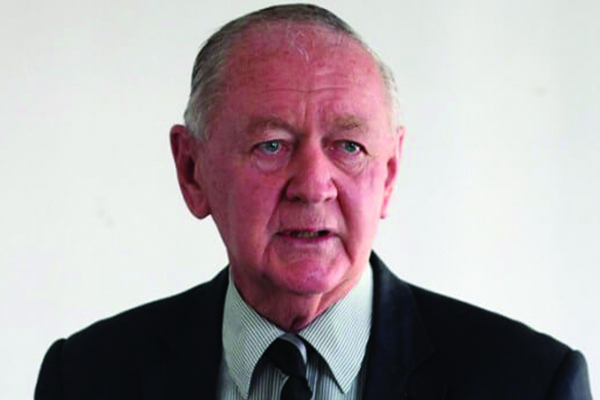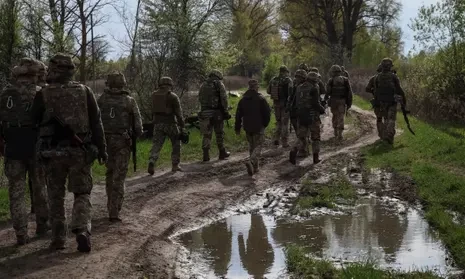
I CAN recall times when a state of emergency was declared and almost always it was in response to violence or political events.
Eddie Cross
But when conditions reach the point where the very livelihoods of the people are at stake, I think the State should consider declaring a “state of emergency”.
If that was the case, would such a declaration be justified today in Zimbabwe? It is an interesting thought.
In many ways, I would think that there are substantive conditions prevailing in the country that might justify such a declaration.
Had I been President in 2008, I certainly would have made such a declaration — inflation was doubling prices every three hours, we had 150 000 cholera cases in Harare, the capital city, there was no fuel in the service stations and nothing in our stores.
Schools were closed, hospitals acting as mortuaries.
Average civil service salaries were $5 per month and power supplies were intermittent.
- Chamisa under fire over US$120K donation
- Mavhunga puts DeMbare into Chibuku quarterfinals
- Pension funds bet on Cabora Bassa oilfields
- Councils defy govt fire tender directive
Keep Reading
Do you remember that?
Today, similar, if not as severe, conditions exist.
Inflation is moving towards hyperinflation levels (50% per annum), we have 8 000 cases of cholera in Harare, fuel is in short supply and shortages are appearing in our supermarkets.
Hospitals are short of nearly everything and disposable incomes are declining fast.
On the surface things look normal, but when you scratch a bit, it is clear we are headed for a crash if nothing is done.
Last week, the informal sector valued the money in our banks (nominally USD) at $2,20 to 1, a 20% devaluation in a week — the previous week it devalued by 12%. Clearly, they see the crisis even if we do not.
So why and what should be done to reverse these developments?
That is what confronts the new government just put together by the President.
Can they handle this new crisis? Well, that is to be seen, but overall the President seems to have put together a team that is competent and has some capacity.
10 women — a big step forward, four professors, five non-political technocrats and the overally size down 40% with the average age down 30%. At the core, is the appointment of an internationally recognised economist as Minister of Finance.
Just as important, although they are not being discussed in the public arena, the new President is making sweeping changes in the civil and armed services.
The emergency we face has many aspects — before he died I told (former MDC-T leader) Morgan Tsvangirai that, in my view, the situation prevailing in Harare was essentially a state of emergency.
When you have a capital city with six million people living in and around it and dependent on the city for essential services and the city can only deliver safe water to half its citizens and where 95% of its waterborne waste goes into its raw water supplies untreated, you have a situation that, if it’s not considered an emergency, will soon become one.
That is the situation in Harare and inevitably both cholera and typhoid have become endemic.
When former President Robert Mugabe (that sounds so good!!) gave the instruction to raise salaries by a third after he won the 2013 elections, he was violating one of the most important laws of economics — spending more than he was collecting in tax.
He did just that before and simply ordered the Reserve Bank of Zimbabwe to print more money.
Eventually, they were printing so much money that a trillion Zimbabwe dollars (worth 1 to 2 US dollars in 1980) would not buy a loaf of bread or a 300ml bottle of coke in 2008.
Now we no longer have a local currency, they simply print money electronically — it worked for about two years and then the market discovered that what they had in their books was not real money.
The consequence today is hyperinflation and tomorrow it will be the threat of a real collapse of the monetary system and even the wider economy.
The process is destroying value, distorting prices and driving the formal economy out of business.
When I met the new Minister of Finance (Mthuli Ncube), I told him he had a month to make essential changes.
Last week a very senior banker told me he had days to do so.
That, in economic terms, is an emergency.
On a regular basis I watch the world news and very frequently I see the situation in Venezuela discussed.
Here is a major oil producer in a potentially rich country, suffering the same crisis.
The outcome of their government’s policies are the same as here and the solutions are the same.
In 2008, we had massive migration of people to neighbouring countries — just like Venezuela today.
If things get much worse here, the flight of people to other parts of the world will resume.
Then there is the foreign exchange crisis.
There is not enough money for wheat, maize, fuel, essential medicines and electricity imports.
Business cannot import spares or essential raw materials, cannot service external obligations and pay their foreign shareholders dividends.
We can take such conditions for a while, stocks; external credit lines and suppliers patience, but eventually it catches up with us and, like a noose around your neck, it gradually strangles our economy.
We may not recognise the symptoms, but every businessperson who needs hard currency to survive knows that being strangled is an emergency, declared or not.











